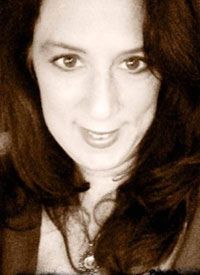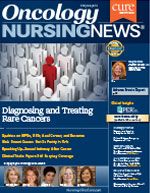Why I Am Passionate About Navigation
My story serves as a reminder that every patient and family I meet as an oncology nurse navigator deserves the care I wanted my father to have.
Kathleen Gamblin, RN, BSN, OCN

Kathleen Gamblin, RN, BSN, OCN
I was working as an oncology nurse navigator in 2007 in Atlanta. I had been in the position just a year and considered myself an empathetic, compassionate oncology nurse who knew how to talk with patients and their families and how to help them. Little did I know how much my world was about to change and how much I would learn about being on the other side.
That day in May when I got the phone call that was about to change my world, I can remember just where I was standing. My father had been hospitalized in Pennsylvania after routine bloodwork revealed an extremely low hemoglobin and hematocrit. After many diagnostic tests were completed, a physician was on the phone telling me that it looked like metastatic disease.
I am sure I asked some questions, but I remember little to none of the conversation that followed. (Until then, I’d never fully understood when patients and families told me they couldn’t remember that first conversation, and it was surreal to now personally experience this.) That evening, the medical oncologist called me and briskly informed me that my dad had an area on his shoulder appearing suspicious for melanoma. The biopsy was performed the next day, and my father was discharged and told to follow-up in 10 days.
Seeing Firsthand the Value of Nurse Navigation
Frustrated, I realized that this is what it felt like to be at the mercy of the medical system when all you wanted was to get the test results. How valuable the services of a nurse navigator would have been at this point. I tracked down the number to the pathology lab, found a sympathetic ear, identified myself as a nurse, and explained how we were waiting for the results. I was told that the results had been available and had been sent to the physician’s office in question several days before.
I reached my dad via phone the night before his appointment with a melanoma specialist. After we talked, he offered his standard goodbye: “I love you Kath and tell the girls (his granddaughters) that I love them too.”
My father never made it to the appointment. The next day he experienced stroke-like symptoms and seizures and was hospitalized an hour from home. An MRI of the brain revealed three large masses. I was on the phone with my stepmother and called the emergency department trying to get information. The person on the phone informed me that no further information could be given on my dad other than he was brought in.
We were told that there was only a 10% chance he would make it through the night. I remember begging the physician to give me enough time to get home to say goodbye. I flew home that evening and arrived late to find him in the ICU on a ventilator and unresponsive. I sat by his bedside and held his hand and kissed him and told him I loved him.
The next morning to our surprise, we found him sitting up in the bed. He had extubated himself and seemed intent on trying to get out of the bed. His speech was extremely garbled, he was off-balance, and he still seemed confused. After several days of recovery in a step-down unit, the physician wrote discharge orders which included a referral to a hospice agency and a follow-up with his family physician. My stepmother looked at me after the physician left and said, “I don’t know how I am going to do this.” I told her we would do it together. Once again, I longed for someone to help us navigate this maze but in that moment it was ours to accomplish.
I connected with the nurse coordinator at the melanoma specialist’s office relaying what we had been told. Her suggestion was an appointment the following day with their office. The melanoma specialist could not have been more attentive and kind to my parents. He did not minimize the severity of what my dad was facing, but he didn’t dwell on it. He seemed to understand that they needed hope at this point. He arranged for palliative radiation and gave us a referral to his preferred hospice, explaining to my dad that hospice would be able to provide services that others could not, that he met criteria, and if he felt better he could always come off hospice. My parents left the appointment more optimistically.
The next few weeks passed in a blur of appointments and daily radiation treatments. The hospice nurse was a godsend, as she helped us plan for his present and future needs. She served as my sounding board and helped to guide me. The days were long as we drove the 45 minutes back and forth to radiation appointments and struggled to find foods for my dad to eat that he wouldn’t choke on. He was frustrated trying to communicate with us, and he needed our help with the simplest of tasks. The steroids left him unable to sleep, and I remember how drained we were, all of the time.
He fell several times because of weakness in his legs, and watching the eyes of this man who was so independent and proud nearly broke my heart. It wasn’t all bad, though. We enjoyed sunny afternoons laughing and talking with friends and family on the outside patio that he loved so much. My husband and daughters came from Georgia, and soon, sounds of little girl voices also filled the air.
One poignant day my dad indicated that he wanted to shave, and so he sat in the bathroom as I prepared to help him. My 4-year-old daughter took the warm washcloth and patted his face asking, “Does that feel okay, Grandpa?” I swallowed back tears as we shaved him and enjoyed that moment.
We found ourselves in the hospital again, one week later, as dad had a critically low potassium level. I was frustrated by what I perceived to be a lack of communication, but our hospice nurse was able to quickly resolve the situation. I fretted over leaving him alone at night, worried that he wouldn’t be able to call out if he needed help, and I’m sure I drove the staff to distraction with my requests.
After several days, I asked the physician if my father was as stable as he would ever be, and he said he thought so, although he couldn’t be sure. I made the difficult decision to drive home to Georgia with my daughters the next day because school would begin the following week. I planned to return the following Saturday.
I left on Monday morning, stopping at the hospital to see him before I left. His granddaughters kissed him, and I did as well. I told him I loved him. At the last moment, I leaned over and whispered in his ear that he was “the best dad ever.” He smiled and squeezed my hand.
Two days later, on my first morning back in Georgia, the phone rang and my stepmother said simply, “they say he is dying.” I dropped everything to race to the airport again, but halfway there, the call came that he was gone. I was grateful for the time I had spent with him and while heartbroken, I was also relieved that he was not suffering.
Nurse Navigation — Paying It Forward
When I returned home, several people urged me to take additional time off. “It’s too soon to go back,” they said. “How can you go back to caring for patients with cancer when your dad just died of cancer?” My dad dying of cancer had opened my eyes to the other side of cancer. I needed to go back. I went back to work in behalf of every family hearing for the first time that their loved one has cancer and they need someone to offer comfort and guidance. I went back to help ease the gaps in communication between healthcare providers, departments, and patients. I went back to honor all of the medical professionals who offered my dad the very highest level of care and offered us hope during a dark time. I went back to be an advocate for earlier hospice referrals so that patients and families could experience the greatest benefit of their services. I went back to offer support to exhausted caregivers who needed help and permission to care for themselves. I went back to help family and friends make the most of the time that they have with their loved ones.
It has been almost 9 years since his death. A picture sits on my desk of the two of us. It serves as a reminder that every patient and family I meet as an oncology nurse navigator deserves the care I wanted my father to have.
Kathleen A. Gamblin is Coordinator, Oncology Patient Navigation, at the Northside Hospital Cancer Institute in Atlanta.

Innovative Program Reduces Nurse Turnover and Fosters Development
Published: September 12th 2024 | Updated: September 12th 2024The US Oncology Network (The Network) has developed one of the most comprehensive programs in the nation to support the professional development and retention of new oncology nurses.
Innovative Program Reduces Nurse Turnover and Fosters Development
Published: September 12th 2024 | Updated: September 12th 2024The US Oncology Network (The Network) has developed one of the most comprehensive programs in the nation to support the professional development and retention of new oncology nurses.
Latest Conference Coverage
2 Commerce Drive
Cranbury, NJ 08512
All rights reserved.


